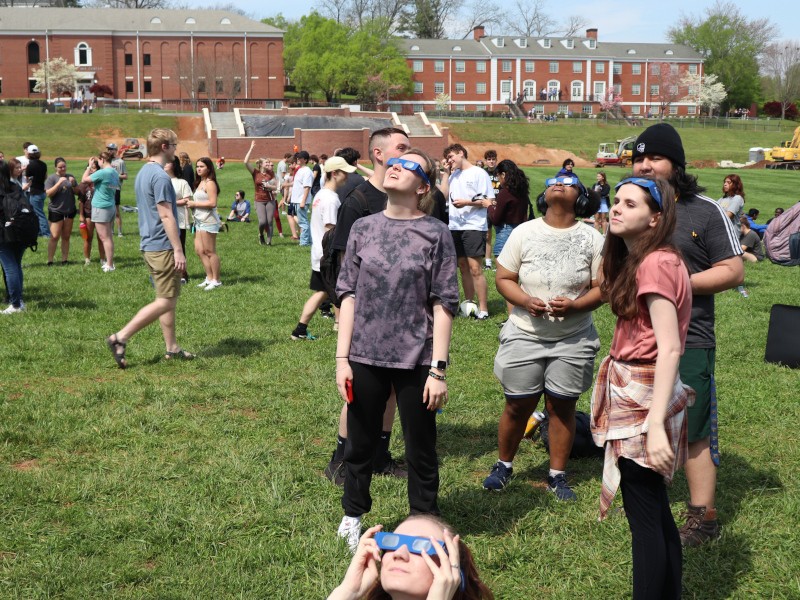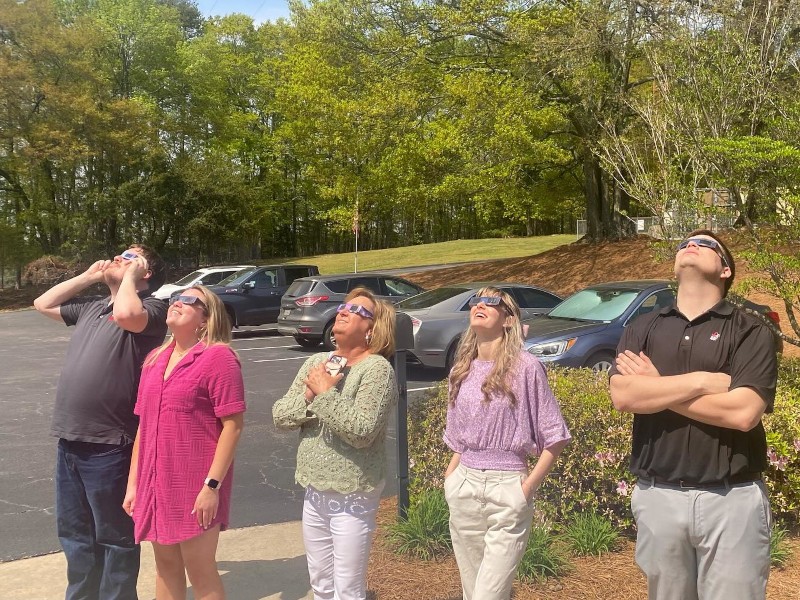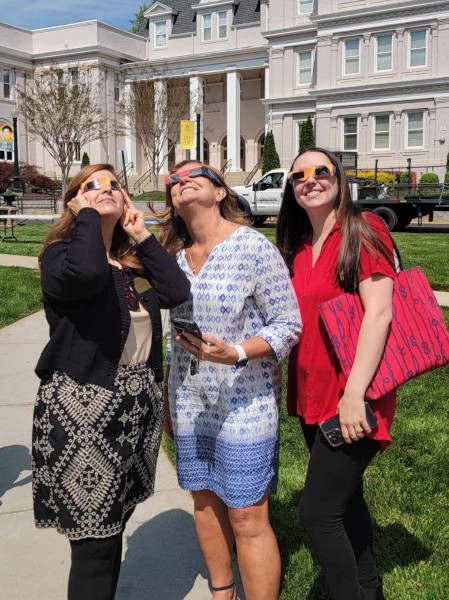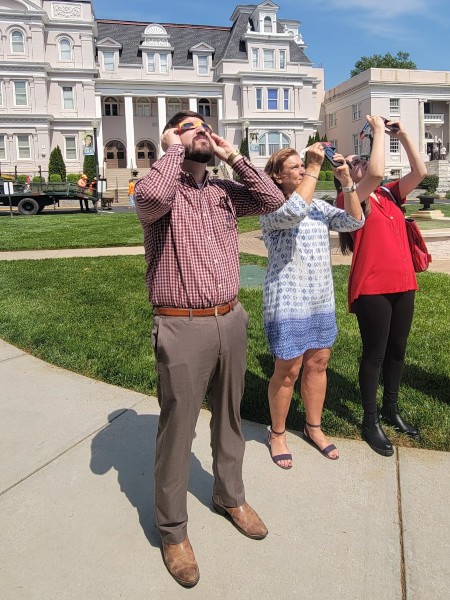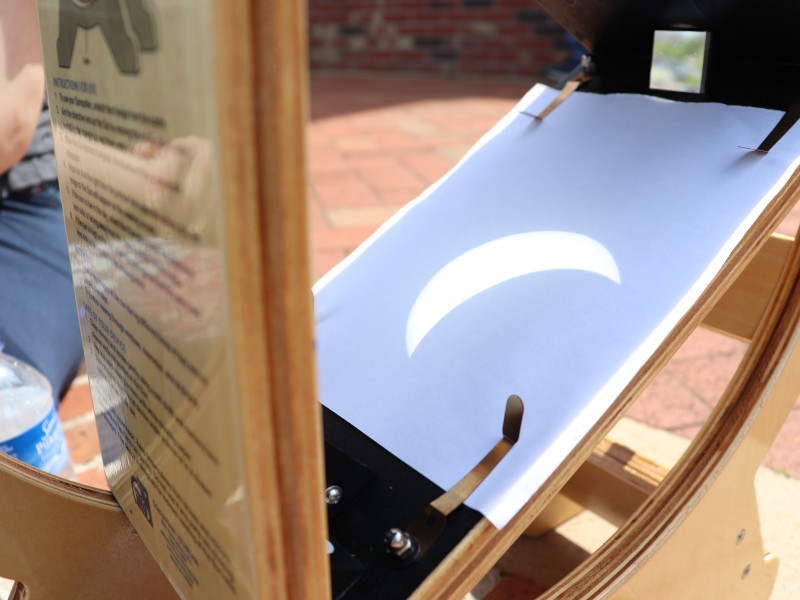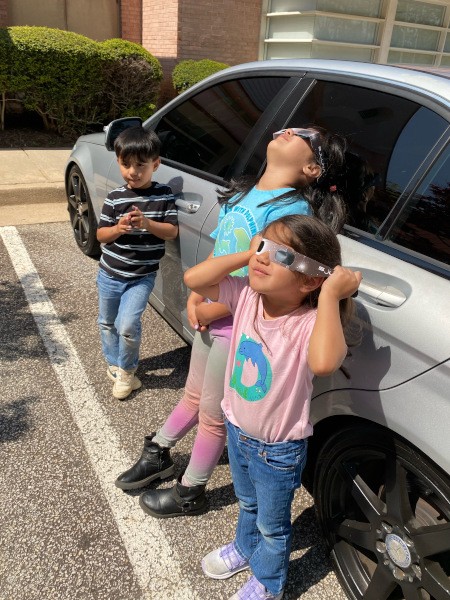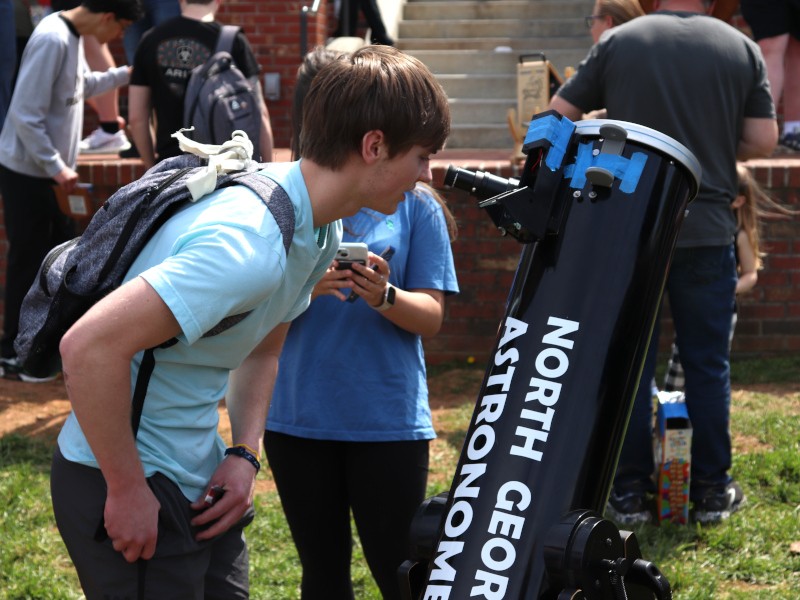Residents across North Georgia looked to the skies Monday afternoon as the Moon partially obscured the Sun in a partial solar eclipse.
The partial eclipse hit its peak in the area at about 3 p.m., with anywhere from around 80 to 85% coverage depending on the location in North Georgia.
Students at the University of North Georgia, Dahlonega Campus, gathered at the Livsey Drill Field to observe the eclipse. Attending students and community members were able to observe the eclipse through two telescopes. Free eclipse glasses were also given out to attendees.
"I'm very glad I was able to see it, even though it's not a total eclipse," Lydia Miller, a UNG senior majoring in Physics with a concentration in Astro Physics, said. "it only occurs a few times, usually every two years, but it depends on where you are on the planet."
Miller was one of several students who taught the community about the eclipse at the event.
Mateo Valera, a UNG junior majoring in Physics with a concentration in Astro Physics, also helped run the event.
"Every single time I'm able to do anything like this, I get so excited," Valera said. "Not only because I personally love all of this, but to be able to show this to other people and get other people excited about space."
The path of totality — approximately 115 miles (185 kilometers) wide — encompassed several major cities, including Dallas, Indianapolis, Cleveland, Buffalo, New York and Montreal. An estimated 44 million people live within the track, with a couple hundred million more within 200 miles (320 kilometers).
It began in the Pacific and made landfall at Mazatlan, Mexico, before moving into Texas, Oklahoma, Arkansas and 12 other U.S. states in the Midwest, Middle Atlantic and New England, and then Canada. Last stop: Newfoundland. The eclipse ended in the North Atlantic.
Several photos from the UNG event, along with photo submissions from the AccessWDUN readership community, can be viewed in the above photo gallery.



